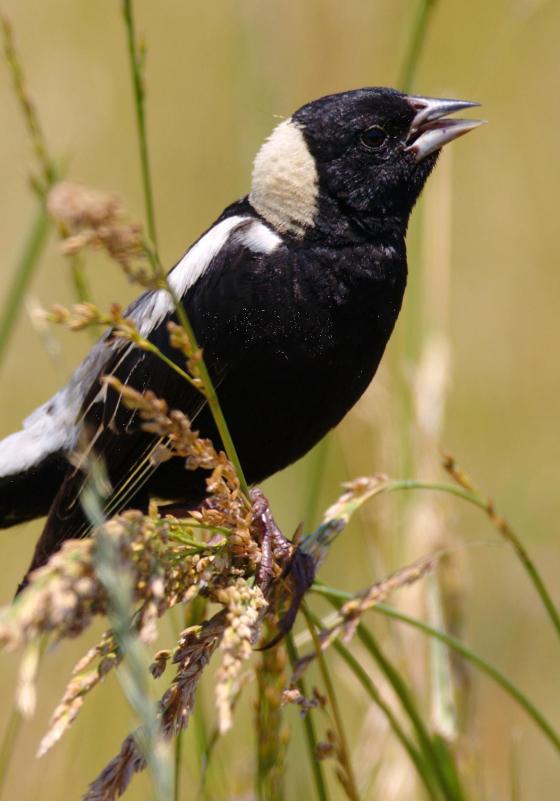Posted April 18, 2014 at 10:59am by Lisa Chase
Bobolink Project is Win-Win for Farmers and Wildlife

The Bobolink Project uses community contributions to pay farmers to adopt haying practices that protect nesting habitats of grassland birds, such as the bobolink. It offers a way for Vermonters, who value the contributions that farms make to the environment, to pledge their financial support to those farms managing their lands for wildlife.
In 2013 the Bobolink Project, a collaborative effort of University of Vermont (UVM) Extension, UVM's Rubenstein School of Environment and Natural Resources and the University of Connecticut (UConn), raised more than $31,000. The contributions helped protect nesting habitat on 200 acres of hayfields in Addison and Chittenden Counties.
The Bobolink Project works with farmers willing to delay mowing of their hayfields until after the bobolink-nesting season, with the understanding that they should consider bobolink habitat as a farm product that they would sell, just like hay, milk, or meat. The goal is to connect farmers who would protect bobolink habitat if economically feasible with consumers willing to pay for that farm commodity. It's a win-win situation for farmers, the community, bobolinks and other grassland birds who utilize Vermont’s landscape for their nesting ground.
The amount of acreage protected this year will depend on the number of pledges received by April 28. Anyone interested in contributing can learn more about the project and how to pledge at www.bobolinkproject.com.
Thanks to a U.S. Department of Agriculture grant that covers research and administrative costs, all of the money pledged by Vermonters goes directly to Vermont farms such as the Wagner Ranch, a third generation-owned and operated family farm in Bridport.
Owner Phil Wagner, who grows hay and corn for his beef operation, first heard about the Bobolink Project from a neighbor last year.
"It seemed like a way to make our farm more financially solvent as well as a good thing to do for the songbird population and the environment," he says, "so we participated." Wagner Ranch plans to do so again this upcoming season, along with a number of other farms in Vermont that are home to critical nesting habitat for bobolinks and other migratory songbirds.
For more information, visit the web site (www.bobolinkproject.com) or contact Lisa Chase at Lisa.Chase@uvm.edu or Stephen Swallow at stephen.swallow@uconn.edu.
